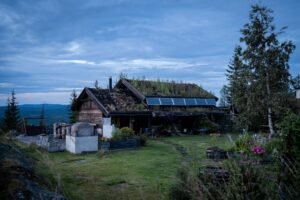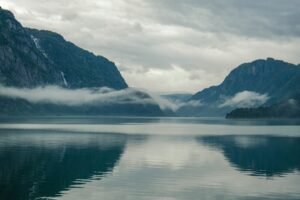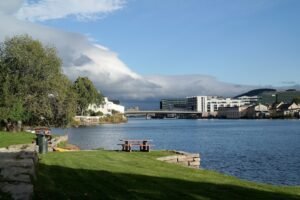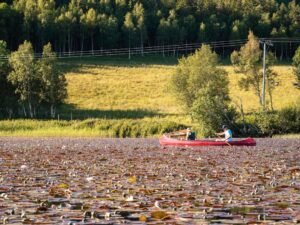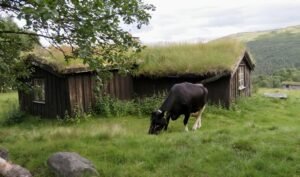

Norwegian Vocabulary for Ecology and Environmental Science
Learning Norwegian vocabulary for ecology and environmental science is essential for anyone interested in understanding and addressing environmental issues in Norway. Norway is known for its stunning natural landscapes, rich biodiversity, and commitment to sustainable development. By learning the language, you can gain a deeper understanding of the country’s environmental challenges and the efforts being made to protect its natural resources.
Norwegian vocabulary related to ecology and environmental science covers a wide range of topics, including climate change, renewable energy, biodiversity, pollution, and natural resource management. By familiarizing yourself with these terms, you can engage in meaningful discussions with experts in the field, read scientific literature in Norwegian, and contribute to the ongoing efforts to protect the environment in Norway.
Table of Contents
ToggleBasic Norwegian Classes for Environmental Science Vocabulary
In basic Norwegian classes for environmental science vocabulary, you will learn the foundational words and phrases necessary for understanding and discussing environmental issues. Some common words you will encounter include “miljø” (environment), “natur” (nature), “økosystem” (ecosystem), “forurensning” (pollution), and “bærekraftig” (sustainable).
To help memorize these basic vocabulary words, it can be helpful to create flashcards or use online language learning platforms that offer interactive exercises. Additionally, practicing speaking and writing in Norwegian will reinforce your understanding of the vocabulary. Consider finding a language exchange partner or joining a study group to practice using the words in context.
Intermediate Norwegian Classes for Ecology Vocabulary
In intermediate Norwegian classes for ecology vocabulary, you will build upon your foundational knowledge and learn more complex words and phrases related to ecology. This includes terms such as “artsdiversitet” (species diversity), “økologisk balanse” (ecological balance), “økosystemtjenester” (ecosystem services), and “klimaendringer” (climate change).
Expanding your vocabulary in Norwegian can be achieved through various strategies. Reading scientific articles and books in Norwegian will expose you to new words and phrases. Watching documentaries or attending lectures in Norwegian will also help you become familiar with specialized vocabulary. Additionally, practicing writing essays or reports on environmental topics in Norwegian will further enhance your understanding and ability to use the language.
Advanced Norwegian Classes for Environmental Science Terminology
Advanced Norwegian classes for environmental science terminology focus on technical terms used in research and discussions within the field. This includes words such as “biodiversitetsindeks” (biodiversity index), “klimamodellering” (climate modeling), “økotoksikologi” (ecotoxicology), and “bærekraftig utvikling” (sustainable development).
To further develop your understanding of advanced vocabulary, it is beneficial to engage with academic literature and attend conferences or seminars where experts discuss their research. Online resources, such as scientific journals and databases, can provide access to a wealth of information in Norwegian. Additionally, seeking out opportunities for internships or research projects in Norway will allow you to immerse yourself in the language and gain practical experience in the field.
Norwegian Vocabulary for Climate Change and Global Warming
Norwegian vocabulary related to climate change and global warming is crucial for understanding and addressing one of the most pressing environmental issues of our time. Some common words and phrases include “klimaendringer” (climate change), “global oppvarming” (global warming), “drivhuseffekten” (greenhouse effect), and “karbonavtrykk” (carbon footprint).
Norway plays a significant role in addressing climate change, as it is committed to reducing its greenhouse gas emissions and transitioning to a low-carbon economy. By learning the vocabulary associated with climate change in Norwegian, you can actively participate in discussions about Norway’s climate policies and contribute to the global efforts to mitigate the impacts of climate change.
Norwegian Vocabulary for Sustainable Development and Renewable Energy

Norwegian vocabulary related to sustainable development and renewable energy is essential for understanding Norway’s commitment to environmental stewardship. Some common words and phrases include “bærekraftig utvikling” (sustainable development), “fornybar energi” (renewable energy), “solenergi” (solar energy), and “vindkraft” (wind power).
Norway is known for its efforts to promote renewable energy sources, such as hydropower and wind power. By learning the vocabulary associated with sustainable development and renewable energy in Norwegian, you can engage in discussions about Norway’s energy transition and contribute to the ongoing efforts to reduce reliance on fossil fuels.
Norwegian Vocabulary for Biodiversity and Conservation
Norwegian vocabulary related to biodiversity and conservation is crucial for understanding Norway’s unique natural environment and the efforts being made to protect it. Some common words and phrases include “biodiversitet” (biodiversity), “verneområde” (protected area), “truede arter” (endangered species), and “naturbevaring” (nature conservation).
Norway is home to diverse ecosystems, including fjords, forests, and tundra, which support a wide range of plant and animal species. By learning the vocabulary associated with biodiversity and conservation in Norwegian, you can engage in discussions about Norway’s conservation efforts and contribute to the ongoing work to preserve its natural heritage.
Norwegian Vocabulary for Pollution and Waste Management
Norwegian vocabulary related to pollution and waste management is crucial for understanding Norway’s efforts to reduce pollution and promote sustainable waste management practices. Some common words and phrases include “forurensning” (pollution), “avfallshåndtering” (waste management), “gjenvinning” (recycling), and “miljøgifter” (environmental toxins).
Norway is known for its commitment to reducing pollution and promoting sustainable waste management practices. By learning the vocabulary associated with pollution and waste management in Norwegian, you can engage in discussions about Norway’s environmental policies and contribute to the ongoing efforts to protect the environment.
Norwegian Vocabulary for Natural Resource Management
Norwegian vocabulary related to natural resource management is crucial for understanding Norway’s approach to managing its natural resources sustainably. Some common words and phrases include “naturressurser” (natural resources), “bærekraftig ressursforvaltning” (sustainable resource management), “skogbruk” (forestry), and “fiskeri” (fisheries).
Norway is known for its responsible management of natural resources, including forests, fisheries, and minerals. By learning the vocabulary associated with natural resource management in Norwegian, you can engage in discussions about Norway’s resource policies and contribute to the ongoing efforts to ensure the sustainable use of its natural resources.
Norwegian Language Schools for Learning Ecology and Environmental Science Vocabulary
There are several Norwegian language schools that offer courses specifically tailored to learning ecology and environmental science vocabulary. These courses provide a structured curriculum that focuses on building vocabulary, improving pronunciation, and developing conversational skills related to ecology and environmental science.
Learning Norwegian in a classroom setting has many benefits. It allows for interactive learning experiences, provides opportunities for practice and feedback, and fosters a sense of community among fellow language learners. Additionally, language schools often have experienced instructors who can provide guidance and support throughout the learning process.
To find Norwegian language schools that offer courses in ecology and environmental science vocabulary, you can search online directories or consult with language learning organizations. Additionally, many universities in Norway offer language courses for international students, which may include specialized vocabulary related to ecology and environmental science. Online resources, such as language learning platforms and websites, can also provide access to self-paced courses and interactive exercises for learning Norwegian vocabulary.
If you’re interested in expanding your Norwegian vocabulary for ecology and environmental science, you may also find our article on “Animal Talk: Learning Norwegian Vocabulary for Animal Lovers” helpful. This article provides a comprehensive list of Norwegian words related to animals, which can be useful when discussing wildlife, conservation, and environmental topics. Check it out here.
FAQs
What is the article about?
The article is about Norwegian vocabulary related to ecology and environmental science.
Why is it important to learn Norwegian vocabulary for ecology and environmental science?
Learning Norwegian vocabulary for ecology and environmental science can be helpful for individuals who are studying or working in these fields in Norway. It can also aid in communication with Norwegian colleagues or partners.
What are some common Norwegian words related to ecology?
Some common Norwegian words related to ecology include økosystem (ecosystem), bærekraftig (sustainable), forurensning (pollution), og biologisk mangfold (biodiversity).
What are some common Norwegian words related to environmental science?
Some common Norwegian words related to environmental science include klimaendringer (climate change), avfallshåndtering (waste management), fornybar energi (renewable energy), and miljøvern (environmental protection).
Can learning Norwegian vocabulary for ecology and environmental science help in job opportunities?
Yes, learning Norwegian vocabulary for ecology and environmental science can be beneficial for job opportunities in Norway, especially for those working in these fields. It can also demonstrate a commitment to understanding and respecting the local environment and culture.
If you want to learn Norwegian, you can register for classes here. We look forward to hearing from you and helping you become fluent in Norwegian.

